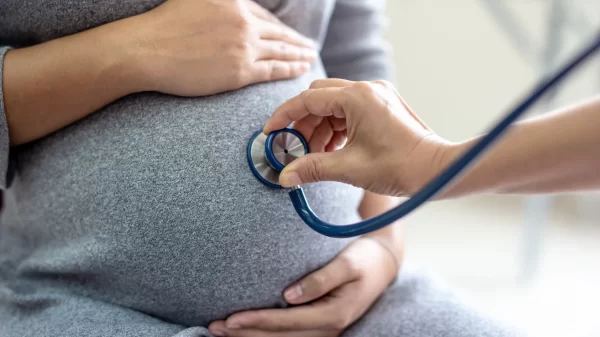The Medical Association of the State of Alabama today joined Alabama legislators in calling for continued state funding to investigate why Alabama mothers die from childbirth and pregnancy complications at more than double the rate of women nationally.
The funding for this research, which was first appropriated by Governor Kay Ivey and the Alabama Legislature just last year, enables the Alabama Maternal Mortality Review Committee (AL-MMRC) to pay for additional autopsies and costs associated with compiling case files and reviewing medical records of Alabama mothers who diedup to a year after giving birth. While the AL-MMRC was launched in 2018, it relied solely on the work of volunteers to undertake such reviews until last year.
Appearing at a press conference in Montgomery today, Aruna Arora, MD, MPH, President of the Medical Association, applauded Senator Linda Coleman-Madison for sponsoring a resolution spotlighting the findings of the first AL-MMRC report and acknowledging continued funding of the program is critical to saving Alabama mothers.
“The recent report of the Maternal Mortality Review Committee was both shocking and informative,” said Dr. Arora. “That nearly 70 percent of the deaths could have possibly been prevented highlights the inequities of our current health system and underscores the need for continuedannual review to determine why thesehigh numbers of deaths are occurring. Funding the review committee provides invaluable insight into the deaths of Alabama mothers and will enable the experts to develop specific strategies to save lives in the future.”
For its initial report, the AL-MMRC undertook a review of all maternal deaths in the state from 2016. Highlights from that report include:
- 36 mothers lost their lives within one year of the end of pregnancy and 36 percent of those deaths were directly related to the pregnancy.
- Nearly 70 percent of deaths were determined to be preventable.
- Mental health and substance use disorders were identified as key contributors in almost 50 percent of deaths.
- 67 percent of deaths occurred 43 to 365 days after the end of pregnancy.
Additionally, the AL-MMRC also made more than 100 recommendations to improve maternal health. Chief among those recommendations is for the state to expand Medicaid.
“Right now, amid a global pandemic, affordable and accessible health care is more important than ever,” continued Dr. Arora. “Just last week, new research found the risk of maternal mortality to be 22 times higher in women who tested positive for COVID-19 during pregnancy. Thus, with other research showing reduced maternal mortality rates and positive maternal health outcomes in states that expanded Medicaid, the decision to expand here in Alabama is abundantly clear.”
The Medical Association appreciates Governor Ivey’s recommendation for initial funding for the review committee for 2020-21 as well as the continued efforts from legislative leaders like Senator Coleman-Madison, Rep. Laura Hall and others.
The Medical Association also launched an online social media effort aimed at increasing awareness of maternal health needs with #SaveAlMoms and a website:






















































